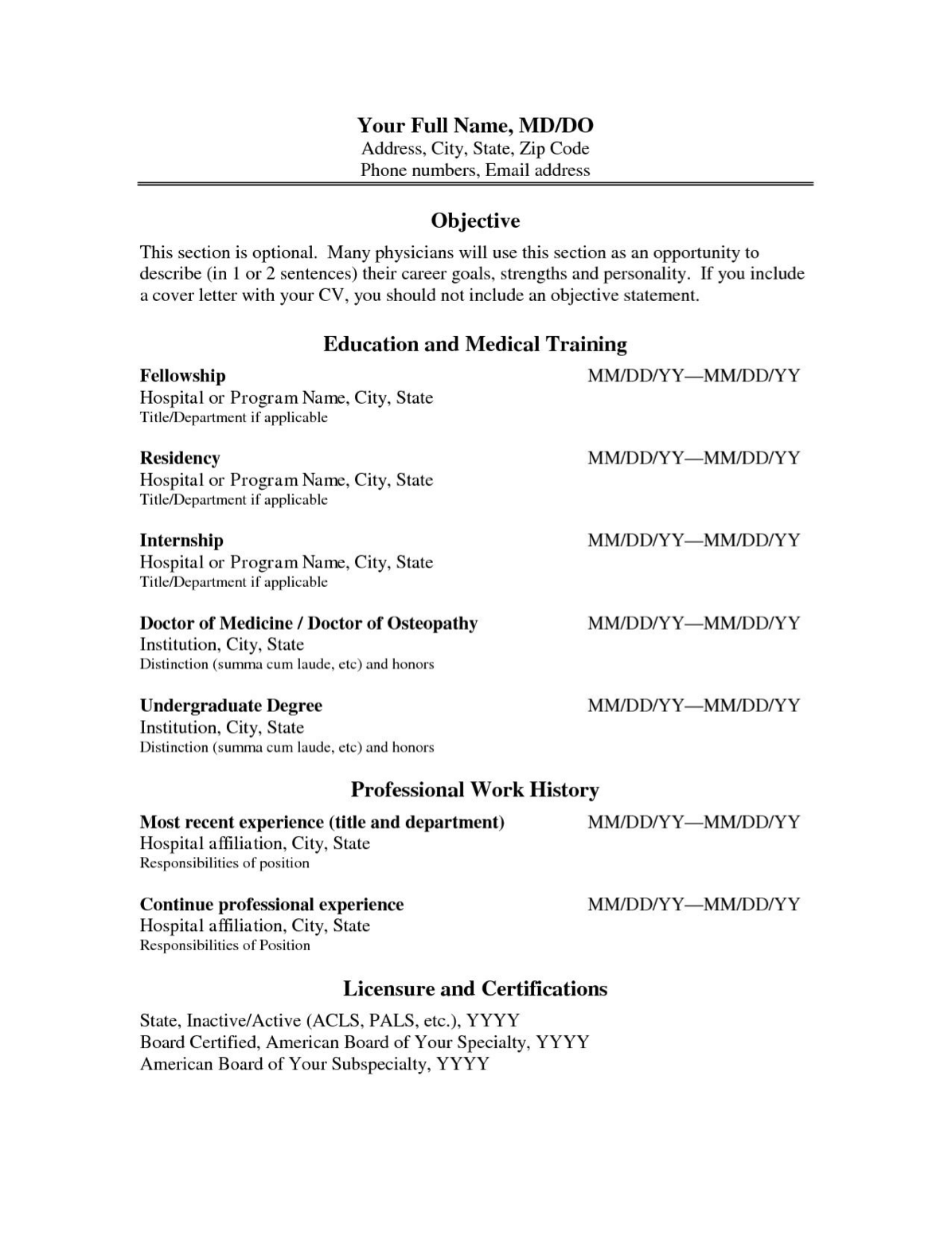Why CompHealth
Locum Tenens
Employers
Contact us Blog
A good CV is like a good handshake, it's their first impression of who you are. Recruiters will be making assumptions about you based off a single document, and each piece of information you share will either move you closer to an offer or a rejection.

A recruiter is looking for two main things:
Before getting knee deep in the details, recruiters need to determine if you meet the basic qualifications for the position. Usually, this means having the appropriate board certifications for your specialty, but some employers have other requirements as well.
Once it’s been determined you meet the minimum requirements, recruiters try to verify that you have relevant experience.

Angie Dinninger Fiscal medicine and rehab manager for Covenant HealthCare
Additionally, Angie Dinninger, fiscal medicine and rehab manager for Covenant HealthCare, says she wants to know where someone was working and the type of role they were in prior to this new role.
Not only does your CV need to show the recruiter why you're a good fit for the facility, it needs to show why you're interested in that specific location. A recruiter wants someone who will love their job and is enthusiastic about coming to work, so let your enthusiasm shine through.

Candace Ash Physician recruiter, Dignity Health Medical Foundation
Matthew Kremer, clinic manager of cardiology at St. Vincent Healthcare, tries to find out from candidates why they want to come to his facility in a rural area. “That’s the most important question we ask, ‘why are you looking at Montana and what’s going to keep you here?’” Retention is important, and for Matt, finding someone who specifically wants a rural experience is key.
You can share what motivates you to work at a specific facility in your cover letter, but adding this information to your CV can be helpful.

Why does it only take recruiters an average of 7 seconds to determine if a CV is good? Because they can spot a red flag from a mile away. Some of these red flags may not rule you out for a position, but it's critical to provide certain information in the right way.
Gaps in employment of six months or more.
Provide an explanation for the gap.
“I love physicians who provide some context. They can send a quick anecdote of the why. ‘My dad was in India. He had a terminal illness, so I took some time off.’ Completely understandable,” Candace Ash, physician recruiter, Dignity Health Medical Foundation.
Candace remembers suggesting to a physician who had recently been on maternity leave to add in a line to her CV explaining why she’d been on leave for seven months. “No one is going to question that, no one,” she says. But when she has no information as to why a candidate has a gap in employment, she admits she leans toward assuming the worst. “Remove the assumptions by giving some context,” she recommends.
Employed at multiple facilities over a short period of time.
Provide reasoning behind the changes in your cover letter.
“Was your spouse in the military? Was there some sort of loan forgiveness situation or H-1B or J-1 visa situation? If it’s not noted on the CV, I don’t know. It automatically leads me to assume that you would be a flight risk,” Candace Ash, physician recruiter, Dignity Health Medical Foundation.
Of course, locum tenens or travel professionals have many jobs, but as long as you provide context in the cover letter or are applying for another locums/travel position, this shouldn’t be a red flag and may actually be a strength.
Applying for a role that doesn’t fit your background.
Explain the jump and why you’re still a good option for the position.
“It piques my interest and I wonder what the story is here. I’m not saying that people can’t take a different career path, or maybe they’ve decided they’ve paid their time and they’re coasting into retirement, but those always cause me to ask a lot more questions,” Angie Dinninger, fiscal medicine and rehab manager, Covenant HealthCare.
When reviewing your CV,recruiters want to understand your career progression. Does the position you’re applying for make sense based on your past work experience? Are you making a large jump up or down in the scope of your responsibilities?
Angie says it is a red flag when someone has been in a managerial position, for example, and is now applying for a significantly lower position. Taking the time to explain why you’re making a career shift in your cover letter can go a long way toward answering a recruiter’s questions that arise during a CV review.
Calling out that you want the job for a visa sponsorship.
Highlight the reasons in addition to the visa you want to work at a facility and why you’re a good fit.
“If you’re a J-1 candidate seeking sponsorship from an organization and the only reason you’re considering us is because we’re going to give you sponsorship, that to me is a yellow flag. It doesn’t disqualify you from getting a job,” Matthew Kremer, clinic manager of cardiology, St. Vincent Healthcare.
Job applicants who require visa sponsorship should be careful to show recruiters why they’re interested in working in a specific facility. Recruiters who believe you’re simply looking for a job — any job — that offers visa sponsorship may not view this favorably. Recruiters want a candidate who is specifically interested in coming to their facility.
Malpractice claims.
Lay the claims out in the cover letter and not the CV.
“If a candidate had a malpractice claim, we’d have to know what that’s all about and that has to be reviewed beyond myself as to whether we can allow that person to practice,” Lisa Hoffmann, resource coordinator, Marathon Health.
A malpractice claim will not immediately exclude you from consideration for a job, but be aware that additional review of the case will have to occur before your application moves further.
Again, these red flags won’t necessarily disqualify you, but understanding the questions recruiters may have and providing explanations in advance can go a long way toward keeping your CV at the top of the pile.

While each CV will look different depending on a provider's unique skills and work experience, it's necessary to include certain pieces of information. Items such as educational history, work experience, and certifications give recruiters a full picture of your skillset.
Of course every CV will look different depending on a provider's unique skills and work experience, but every CV needs to include certain pieces of information. Items such as educational history, work experience, and certifications give recruiters a full picture of your skillset. For a quick overview of what to include in your CV, check out this document.

Include your name, title or degree (e.g. MD, DO, etc.), and contact information (address, phone number, and email address) at the top of each page of your CV. Double check there are no errors.
List your educational history starting with your most recent and going back, including all degrees until you reach your bachelor's degree. For your medical training, list of the name of the program, the type of training (e.g. fellowship, residency, etc.), the name of the hospital or facility you trained at, and the complete dates of attendance.
As you did in your education history, list your work history in reverse chronological order. For each previous employer, include the name of the employer, location, dates worked, and a brief description of your main responsibilities and/or accomplishments.
How far back you go depends on a few things, but it's best to include at least the past 10 years of employment. If you've been at one employer for a long time, it may be beneficial to include more than 10 years' worth.
Conversely, if you're new to the field, you may have less than 10 years of experience. Listing past employment, even if it's not related to your current field, can help show that you have a work history and are a responsible employee.
List your board certifications and other accreditations. Make sure to include dates of issue, recertification, and expiration. Also include all active and inactive licenses and the states in which you hold the license.
If you've ever received a hospital reprimand, a loss of privileges, or a license suspension, don't list this on your CV. This is better addressed in a cover letter, where you can explain what happened.
If you have previous military service, list the dates served and rank held.
The following sections are all optional, but they can help your CV stand out. This information can give a recruiter a more well-rounded picture of who you are and what skills you can bring to the position.
"I would say what I routinely see absent or missing from a CV is a summary statement of the candidate, "Matthew Kremer, clinic manager of cardiology, St. Vincent Healthcare.
A summary statement is a short paragraph at the top of your CV that highlights your relevant skills and experience. It's a good opportunity to share the unique qualities you want the recruiter to know about before they read your CV.
If you're a member of any professional organizations, include them. Memberships show you're taking an active role in furthering your career. Recruiters specifically look for individuals who take initiative and are interested in continuing their education.
"Do you have specialty training or certifications of some kind? What types of patients have you seen? Have you been on committees or projects or leadership teams? Have you done things that are out of the norm?" asks Angie Dinninger, fiscal medicine and rehab manager, Covenant HealthCare.
Once someone finishes school they can start seeing patients, but what makes you stand out? What makes you, you? Use this opportunity to show why you're unique and how that makes you the right fit.
If you've received any awards or been recognized for something in your career or during your training, make sure you share it. Recruiters appreciate knowing if you've been recognized for outstanding performance in the past.
Sharing publications or research can be useful, but how much you share is dependent on the type of position you're applying to.
When applying for an academic position or to work at a research institution, including a comprehensive list is recommended. However, if you're applying to work at a smaller hospital, including the most impressive items and writing "partial list — full list available upon request" is a good way to keep your CV from getting too long.
If you've participated in community service or volunteer work, you may want to include it in your CV. Providing these details can demonstrate your character and commitment to certain causes, and it can also paint a picture of how you might fit into the local community.
If being able to practice your hobbies is a reason that you'd like to work in a specific community, mentioning this can show the recruiter why you have an interest in working at their facility.
Read more tips on how to make your CV stand out.

How your CV looks can make just as big of an impact as the content you put into it. It’s vital that your CV is easy to skim, error-free, and only contains the most important information.

Angie Dinninger Fiscal medicine and rehab manager for Covenant HealthCare
Considering recruiters spend mere seconds reviewing it, you want your CV to stand out for all of the good reasons — your skills and experience — and none of the bad.

Make bullet points.

Write in paragraphs or full sentences.
Use bullet points to list short pieces of information instead of writing in paragraph form or in complete sentences. Making use of white space and bolded headings is also useful so the recruiter can easily find what they’re looking for.

Make the CV short and concise.

Make the CV unnecessarily long and hard to read.
“I’ll say a 10-plus page CV is not uncommon for someone who’s spent their career in academia, right? What I’m looking for is a CV that provides an accurate representation of your training and your experience. For less than five years’ experience, you better not have more than two pages,” Candace Ash, physician recruiter, Dignity Health Medical Foundation.
How long your CV is will depend on the type of position you’re applying to and how long you’ve been working in the field. Understandably, someone just entering the field will have a shorter CV than a someone who’s been working for several decades.

Make sure formatting, spelling, and grammar are correct and get a second set of eyes to look at it.

Perform a hasty edit by yourself.
Before sending your CV to a recruiter, it's essential there are no errors. Have a few friends or colleagues review the document. Often, they'll catch mistakes you've missed. Whatever you do, don't go at it alone.

Make sure the CV fits the role you’re applying for.

Send out a generic CV.
Each CV you submit should be tailored for that specific opening. Sending out a generic CV to multiple positions can reflect poorly on you, especially if the recruiter can tell you haven’t updated it for their position.
“Some resumes have an objective at the top, and if their objective doesn’t even match what they’ve applied for, that’s a huge red flag for me. It shows you’re not even taking time to update your CV to make it relative to the job you’ve applied for,” Angie Dinninger, Fiscal medicine and rehab manager, Covenant HealthCare.
If your CV is complete, avoids red flags, and is error-free, you're almost there. Now, you need to make it stand out.
“Why should I pull your resume to the top of the pile versus the other three I might be looking at?” asks Angie. She wants applicants to show her what they’ve accomplished above and beyond their day-to-day work as well as why they’ll be a good fit for the facility.
Taking the time to craft a compelling CV isn’t easy but it’s the best way to attract interest from a recruiter, and ultimately, land you the position you want.

Candace Ash, Physician recruiter, Dignity Health Medical Foundation
Now that your CV is ready to roll, feel free to browse these open jobs. Or, feel free to give us a call at 888.212.0816 or fill out the form below. After all, we do know a thing or two about landing you the perfect job.